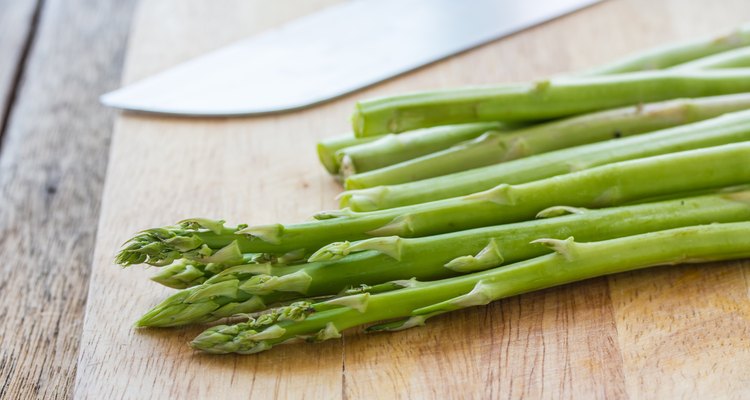
Weerameth Weerachotewong/iStock/Getty Images
Selenium is a trace element that is essential for your health in small amounts. Selenium is needed for the function of certain enzymes called selenoproteins, which function as antioxidants, hormone regulators and regulators of protein synthesis. Without proper intake of selenium form your diet, your body cannot make these proteins. Selenium deficiency can cause cardiomyopathy, a type of heart disease, and osteoarthritis. Selenium is mainly found in meat, seafood, grains and nuts. Many vegetables contain small amounts of selenium.
Selenium Intake
The recommended selenium intake is 20 to 40 mcg for children and 55 mcg for teens and adults per day. Consuming large amounts of selenium can be toxic, however, according to the Linus Pauling Institute. Selenium toxicity can cause brittle and loss of nails and hair, gastrointestinal problems, skin rashes and nervous system abnormalities. The upper intake level for selenium is 90 to 280 mcg for children and 400 mcg for teens and adults.
High-Selenium Vegetables
Few vegetables provide large amounts of selenium. Get around 20 percent -- 11 mcg -- of your daily selenium by eating a cup of spinach, soybeans, lima beans or pinto beans, or 2 cups of asparagus, mushrooms, garbanzo beans or black-eyed peas.
Low-Selenium Vegetables
A number of vegetables contain low amounts of selenium. Foods that contain around 10 percent -- 5.5 mcg -- of your daily selenium include 2 cups of white beans or green peas or 2 1/2 cups of broccoli, Brussels sprouts, kidney beans or black beans. Onions, winter squash, kale, carrots and cauliflower also contain low amounts of selenium.
Serving Suggestions
Add vegetables that contain selenium to your regular meals to improve your selenium intake. For example, add mushrooms or spinach to your bean dip; use a variety of beans in your chili; add asparagus, mushroom and onions to pasta sauces; and add spinach, beans and mushrooms to a green salad. The average person gains selenium through a variety of types of foods in their diet. Vegetarians can fulfill the daily intake of selenium -- 55 mcg -- by eating 2 cups of spinach; 1 cup of pinto, lima or soy beans; 2 cups of mushrooms; 1 cup of asparagus; and 2 1/2 cups of broccoli.
Related Articles

Nutrition Information on Blueberries

Vitamins for Mental Alertness

Are Bean Sprouts Good for You?

L-Lysine for Hair Growth

The Nutrition of 15-Bean Soup

Zinc Treatment for Rosacea

How to Reduce Acne Inflammation
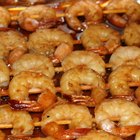
A List of Foods That Contain Choline
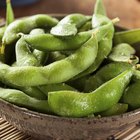
The Nutritional Value of Edamame Beans

High Fiber & Protein Diet Menus

Which Vegetables Produce the Most ...
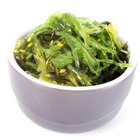
Why Is Seaweed Good for the Thyroid?
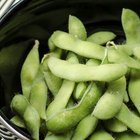
List of High Protein Vegetables
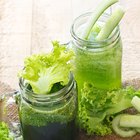
How to Use Lettuce for Hair Growth

How to Freeze Lentils
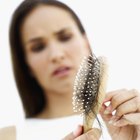
Is Zinc Good for Hair Growth?
Toppings for Quinoa

Chlorella and Hair Loss
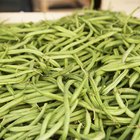
Nutritional Value of String Beans

Menu for a Calorie-Restricted Diet
References
Writer Bio
Maria Hoven is a health and fitness expert with over 10 years of expertise in medical research. She began writing professionally in 2004 and has written for several websites including Wound Care Centers and healthnews.org. Hoven is earning a Doctor of Philosophy in cell and molecular biology from the University of Nevada, Reno.
Photo Credits
Weerameth Weerachotewong/iStock/Getty Images